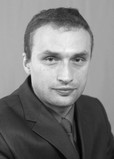Information technologies as segment of training process in combat sports
Фотографии:
ˑ:
PhD, Associate Professor A.V. Pavlenko1
PhD, Associate Professor N.A. Vakhnin2
S.A. Yakovlev2
1Lesgaft National State University of Physical Education, Sport and Health, St. Petersburg
2Saint-Petersburg Mining University, Saint-Petersburg
Objective of the study was to determine the role of specialized information in improving the process of training in combat sports based on an analysis of athletes’ structure of needs.
Methods and structure of the study. The study was conducted among the 1st-4th year students of the Boxing Theory and Practice Department at Lesgaft National State University of Physical Education, Sport and Health and students-members of the St. Petersburg State University team, and lasted from March 2019 through September 2019. The total number of participants equaled 43 athletes of both sexes, all aged from 18 to 25 years and having experience in combat sports from 4 to 15 years. The subjects had different sports specializations: boxing, kickboxing, taekwondo. The main research method applied was an anonymous questionnaire survey, which was carried out three times, without changing the sample of participants by composition.
Research results and conclusions. We developed a structure of needs of combat athletes in obtaining relevant information in the field of training and competitive activity: main sources of information; information content; data on leading athletes; purpose of use of received information by athletes; priority orientation of specific tasks and exercises derived from information sources; frequency of use of information resources.
The findings indicate that understanding the athletes’ needs within the information environment enables to improve the methodological tools for solving the training process tasks.
Keywords: information technologies, combat sports, athletes’ needs, training process.
References
- Bakulev S.E., A.V. Pavlenko, M.A. Rogozhnikov, V.V. Kuzmin Sovremennyie tehnologii v issledovanii slozhnokoordinatsionnyih dvigatelnyih deystviy thekvondo [Modern technologies in study of complex coordination motor actions in taekwondo]. Uchenye zapiski universiteta im. P.F. Lesgafta. 2015. № 2 (120). pp. 133-138.
- Mokeyev G.I., M.P. Ivanov, V.N. Kharrasov et al.Informatsionno-izmeritelnaya sistema kontrolya parametrov trenirovochnogo protsessa bokserov [Information-measuring system for monitoring the parameters of the training process of boxers]. Uchenyie zapiski universiteta im. P.F. Lesgafta. 2010. # 4 (62). pp. 63-66.
- Mokeev G.I., Rudenko G.V. Osobennost organizatsii i soderzhaniya trenirovki bokserov v polugodichnom makrotsikle [Boxers' training process design and content within half-year training macrocycle]. Teoriya i praktika fiz. kultury, 2017. no. 5, pp. 72-74..
- Rudenko G.V., Mokeev G.I. Osobennosti kompleksnoy podgotovki yunykh bokserov [Junior boxers' integrated training system]. Teoriya i praktika fiz. kultury, 2017, no. 5, pp. 53-55.
- Simakov A.M., Pavlov I.D. Monitoring funktsionalnogo sostoyaniya thekvondistov v godichnom makrotsikle trenirovok [Monitoring of functional state of taekwondokas in annual training macrocycle]. Uchenye zapiski universiteta im. P.F. Lesgafta. 2014. № 5 (111). pp. 165-170.



 Журнал "THEORY AND PRACTICE
Журнал "THEORY AND PRACTICE